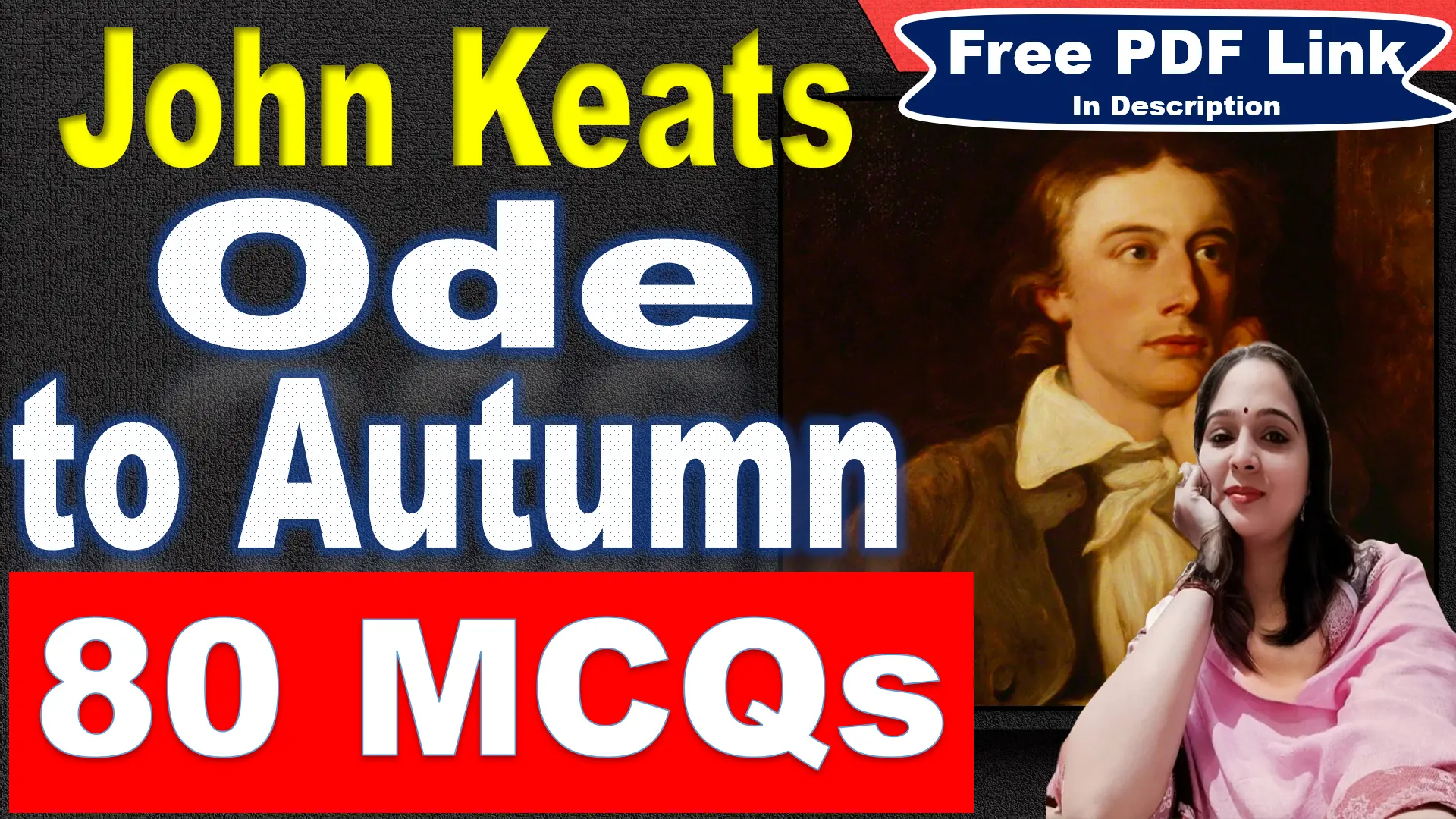India Poem by Shoshee Chunder Dutt | India Poem | India by Shoshee Chunder Dutt | India | Shoshee Chunder Dutt | Explanation | Summary | Key Points | Word Meaning | Questions Answers | Critical Appreciation | Free PDF Download – Easy Literary Lessons
India
(Shoshee Chunder Dutt)
And shall I to the future turn my gaze?
The future is a sealed book to man,
And none so high presumes his sight to raise;
God’s mystic secrets who shall dare to scan?
But sure it is no mighty sin to dream;
I dreamt a dream of strange and wild delight,
Freedom’s pure shrine once more illumed did seem,
The clouds had pass’d beneath the morning light;
On beauty’s cheek I mark’d the tear-drops dry,
And sighs and groans for ever fled the land;
Science again aspired to the sky,
And patriot valour watch’d the smiling strand:
A dream! a dream! Why should a dream it be?
Land of my fathers! Canst thou ne’er be free?
India Poem by Shoshee Chunder Dutt: YouTube Link
India Poem by Shoshee Chunder Dutt Analysis
And shall I to the future turn my gaze?
The future is a sealed book to man,
And none so high presumes his sight to raise;
God’s mystic secrets who shall dare to scan?
Explanation
The opening stanza sets the tone for the entire poem. The poet is looking towards the future, acknowledging that it is a mystery that only God can fully comprehend. This reflects the uncertainty and unpredictability of life and the future. Despite this, the poet asserts that dreaming about the future is not a sin. This statement is significant as it underscores the importance of hope and imagination in envisioning a better future. The poet’s dream for his motherland, India, is a testament to his deep love and concern for his country. His words reflect a sense of anticipation and longing for a brighter future.
Metaphor: The future is referred to as a “sealed book”. This metaphor is a powerful way to express the idea that the future is unknown and unpredictable. It’s like a book that is sealed or closed, whose contents cannot be read or known until it is opened.
Personification: The future is personified as a book that is sealed to man. Personification is a figure of speech in which an inanimate object or abstraction is given human qualities or abilities. This personification adds depth to the metaphor and makes the concept of the future more relatable and understandable.
Rhetorical Question: The poet asks, “God’s mystic secrets who shall dare to scan?” This rhetorical question is used for dramatic effect to emphasize the unknowability of the future. A rhetorical question is a question asked in order to create a dramatic effect or to make a point rather than to get an answer.
But sure it is no mighty sin to dream;
I dreamt a dream of strange and wild delight,
Freedom’s pure shrine once more illumed did seem,
The clouds had pass’d beneath the morning light;
Explanation
In the second stanza, the poet shares his dream for India. He envisions a free and enlightened nation, symbolized by the phrase “Freedom’s pure shrine”. This symbolizes a nation where liberty is revered, indicating the poet’s desire for political and social freedom. The “morning light” represents a new dawn of freedom and hope, suggesting a break from the darkness of oppression and suffering. The poet sees the sorrows of the past, represented by “tear-drops”, disappearing, indicating an end to suffering and oppression. The land is free from sighs and groans, further emphasizing the end of hardship and the beginning of a new era of peace and prosperity.
Poetic Device
Symbolism: The poet uses the phrase “Freedom’s pure shrine” as a symbol for a nation where liberty is revered. Symbols are used in literature to represent something beyond the literal meaning. Here, the “pure shrine” symbolizes a place of respect and reverence, indicating the poet’s desire for political and social freedom.
Imagery: The poet uses vivid imagery like “clouds had pass’d beneath the morning light” to paint a picture of a new dawn of freedom and hope. Imagery is the use of descriptive language to create visual representations of actions, objects, and ideas in our mind in such a way that they appeal to our physical senses.
On beauty’s cheek I mark’d the tear-drops dry,
And sighs and groans for ever fled the land;
Science again aspired to the sky,
And patriot valour watch’d the smiling strand:
Explanation
The third stanza continues the poet’s dream, focusing on progress and development. The resurgence of science symbolizes progress and the advancement of knowledge, reflecting the poet’s hope for intellectual and technological growth in India. The “patriot valour” watching over the “smiling strand” represents the courage and determination of the people vigilantly protecting their land. This suggests a sense of national pride and the readiness to defend the nation’s freedom and integrity.
Poetic Device
Metaphor: The phrase “On beauty’s cheek I mark’d the tear-drops dry” is a metaphor where ‘beauty’s cheek’ could be a metaphor for the country itself, and the drying tear-drops symbolize the end of suffering.
Personification: Science is personified as aspiring to the sky, symbolizing progress and development. This personification gives life to the abstract concept of science, making it more relatable and vivid.
Symbolism: The phrase “Patriot valour watch’d the smiling strand” is symbolic. ‘Patriot valour’ symbolizes the courage and determination of the people, and ‘smiling strand’ represents a peaceful and prosperous land.
A dream! a dream! Why should a dream it be?
Land of my fathers! Canst thou ne’er be free?
Explanation
The final stanza concludes the poem with a poignant question: why should this vision of a free and prosperous India remain just a dream? The poet expresses a deep longing for the freedom of India, the “land of my fathers”. This reflects his patriotic spirit and his profound love for his country. The repetition of the word “dream” emphasizes the intensity of the poet’s desire and his frustration at the current state of affairs. The final line leaves the reader with a powerful image of a nation yearning for freedom, encapsulating the central theme of the poem.
Poetic Device
Repetition: The phrase “A dream! a dream!” is repeated for emphasis. Repetition is a literary device that repeats the same words or phrases a few times to make an idea clearer and more memorable.
Rhetorical Question: The poet asks, “Why should a dream it be?” This rhetorical question is used to provoke thought and emphasize the poet’s desire for freedom.
Apostrophe: The poet addresses his country directly as “Land of my fathers!” This direct address to an inanimate entity or abstract idea is known as apostrophe, and it serves to personalize and dramatize the poet’s emotional appeal.





